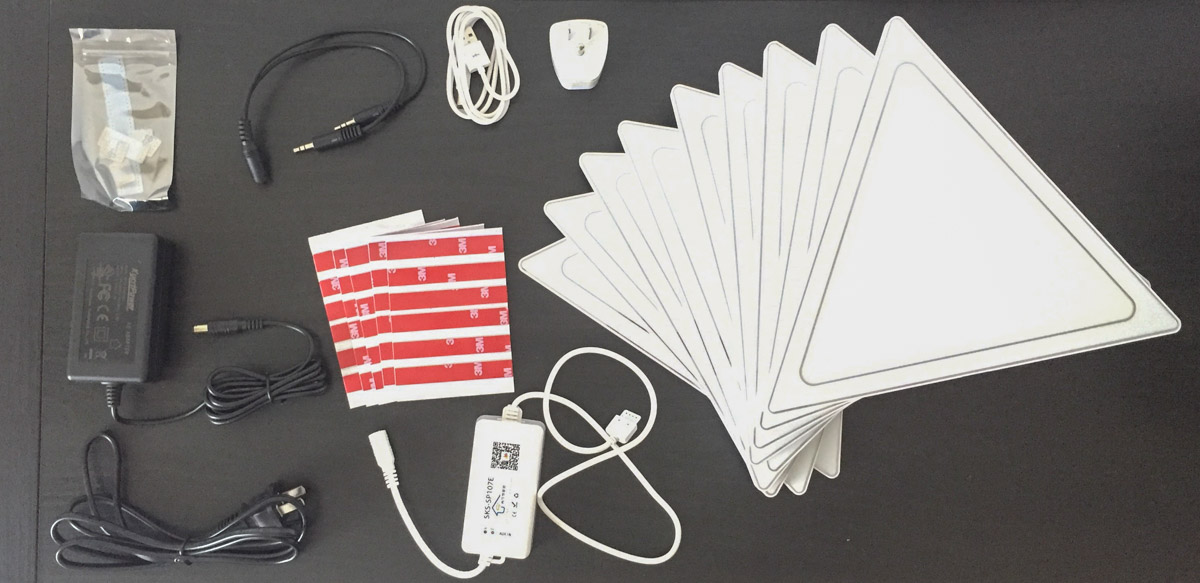In the last few days we have received SKS-SP107E on trial, a lamp that we have defined chameleon for its ability to change in appearance. In addition to adjusting the light in color and light intensity, it can in fact be “arranged” in the shape you prefer: it consists of 9 triangular-shaped LED panels that connect to each other and are controlled via the combined app directly from the smartphone .
In the box
Inside the box with which SKS-SP107E arrives home we find:
1 of 10 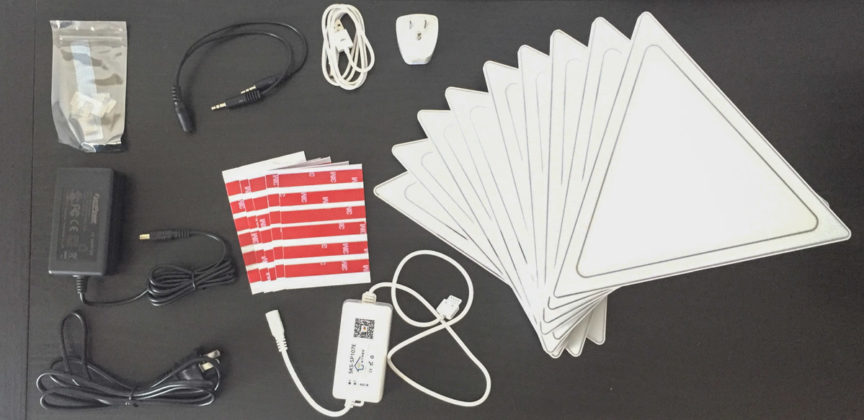
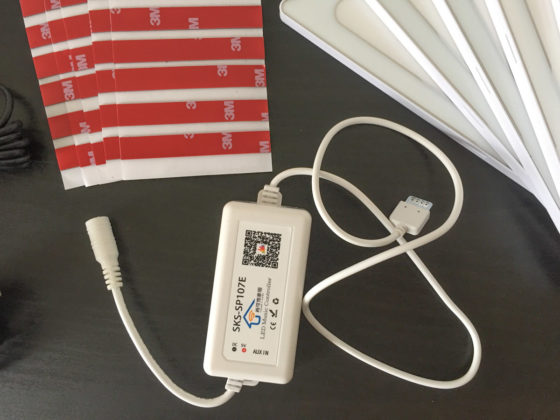
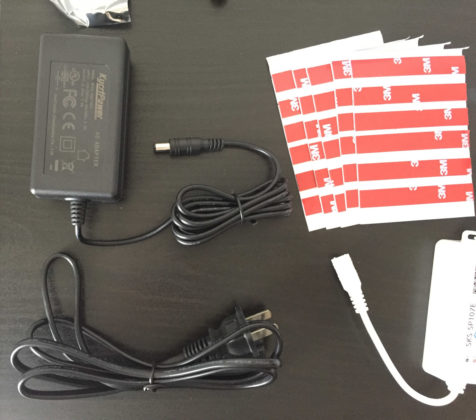
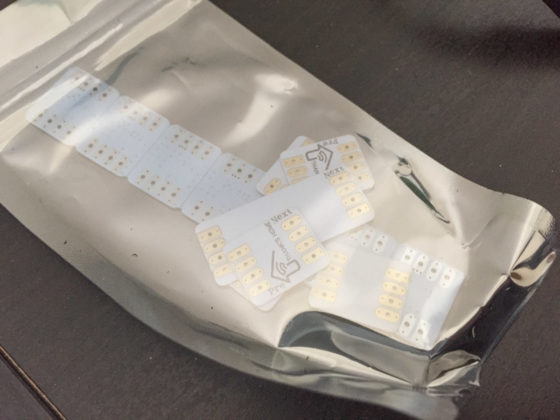
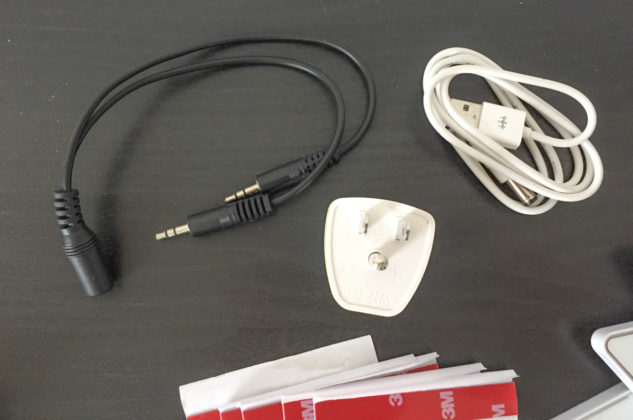
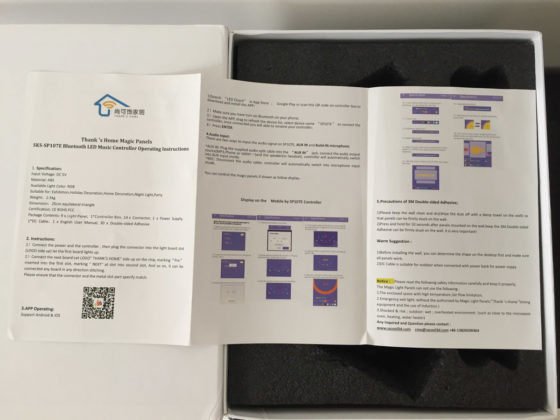
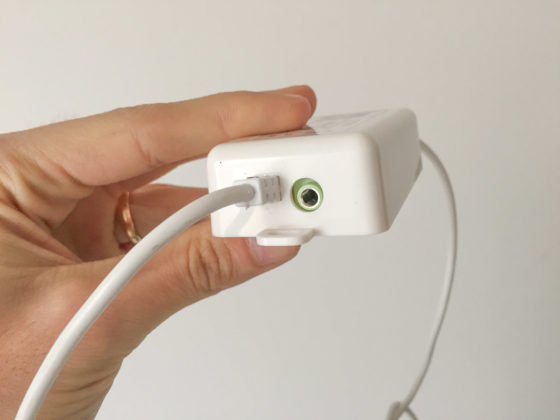
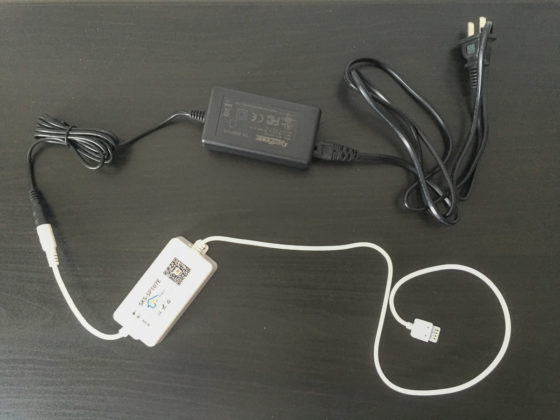
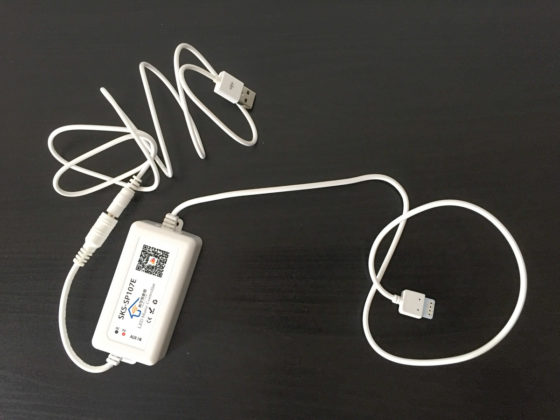
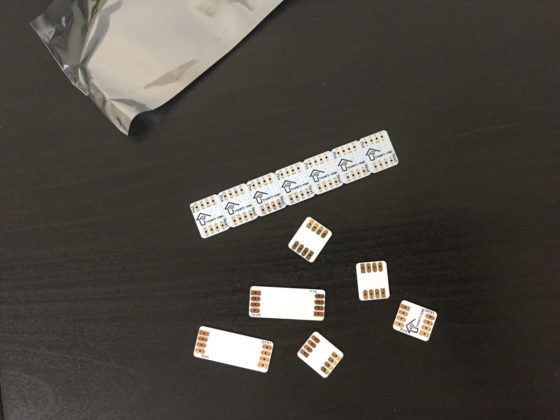
How it is made
The actual SKS-SP107E lamp, as we said, is made up of 9 triangular-shaped LED panels. Each of these is built in white colored polycarbonate built fairly well, with a reinforced structure on the back that stiffens the whole body. The front LED panel is covered with a transparent plastic panel protected by a transparent film that we recommend removing only after mounting the lamps in the designated point: initially, in fact, you will have to try the various combinations and this protection is essential to prevent the front facades LED panels can get scratched (among other things in the package they are kept stacked one on top of the other and already when unpacking the films themselves will prove to be slightly worn).
Each side of each single panel has an opening approximately as large as that of a microSD slot: here the small connectors will be inserted only in the sides that will be placed side by side with those of other triangles, allowing the passage of current between a panel and the other for the necessary power supply.
These connectors are very flexible and the advice is to do a test of the various combinations on the floor: lifting two or more triangles hooked together without any support you risk breaking the chips, which are almost counted (11 chips for 9 LED panels) . It is therefore better to try the ground system first and then fix the lamps to the wall or wherever you prefer.
1 of 3 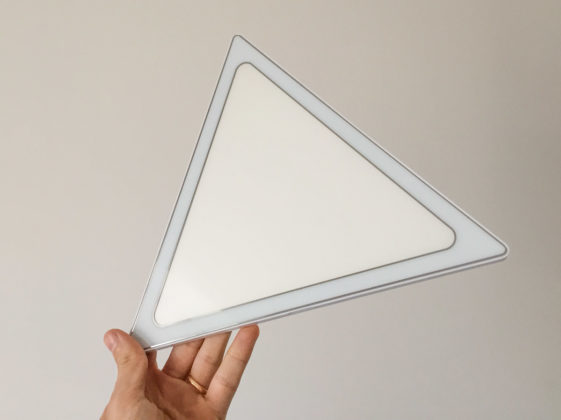
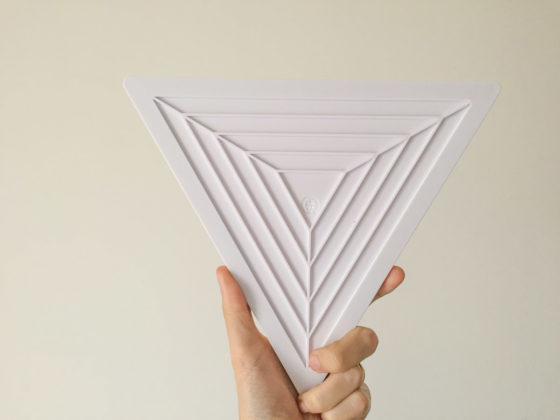
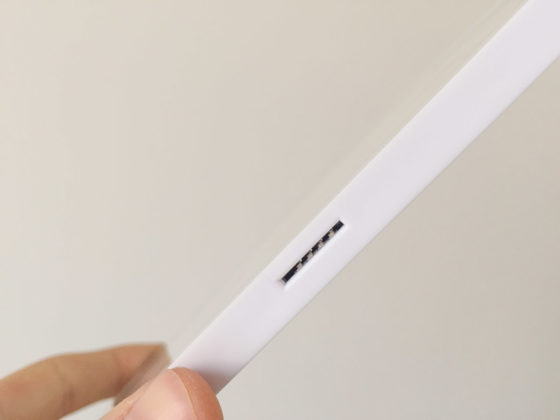
How does it work
To begin with, you need to power an LED panel by connecting the controller (whose plug has the same shape as the individual chips) to it. The latter can be connected to the power supply or to the alternative power cable with USB plug, bearing in mind that the latter must be connected to a USB socket with sufficient power to be able to power the LED panels. For example, forget to plug it into your TV's USB port, as most of them have barely enough power to power two LED panels.
At the end of this first connection, the LED panel will turn on emitting a green light. Then take your smartphone or tablet and download the LED Chord app, available for free on the App Store for iOS and Play Store for Android.
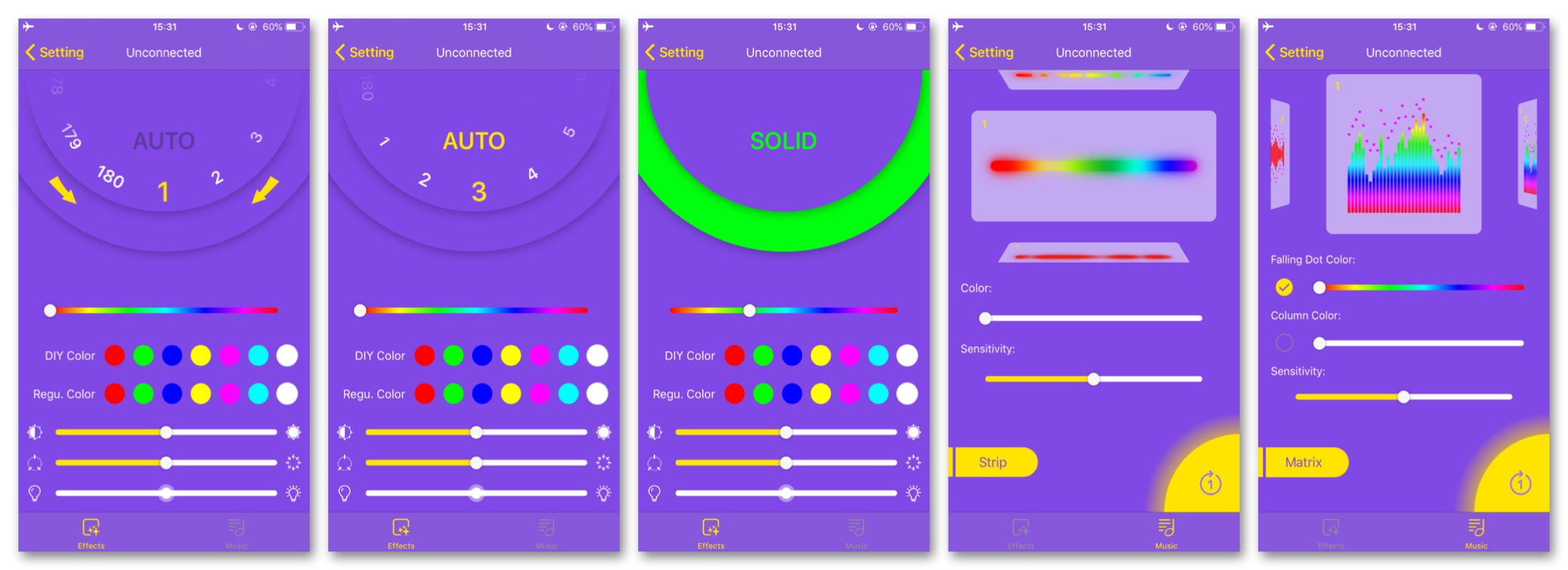
Activate Bluetooth, then pull to refresh on the main screen to allow the application to show, within the list, the Bluetooth devices available nearby. Select the LED panel to connect it to the phone.
At this point you can connect to it, one at a time, the other LED panels using the connectors in the package. It is important that you carry out this operation only after having powered the first panel as, we are not clear why, if you combine all the panels before powering one, none of them will turn on.
1 of 6 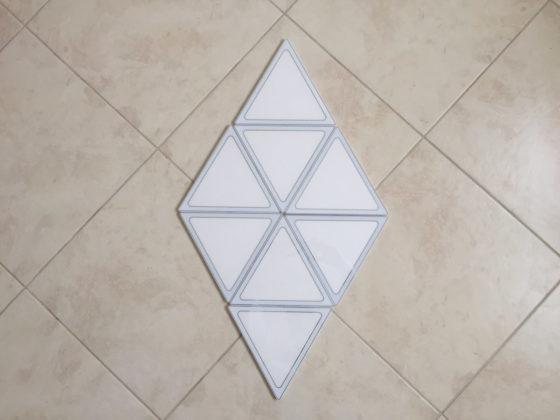
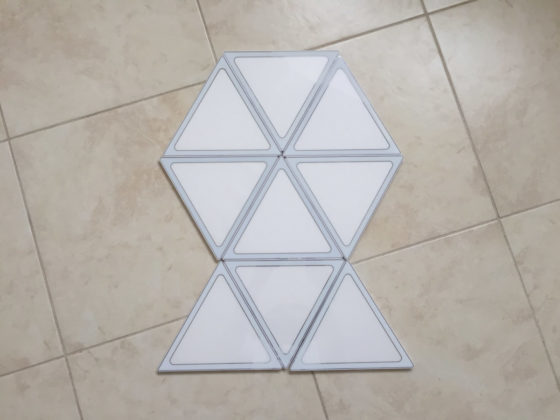
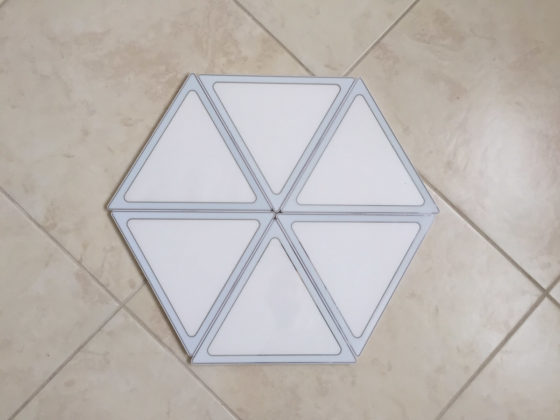
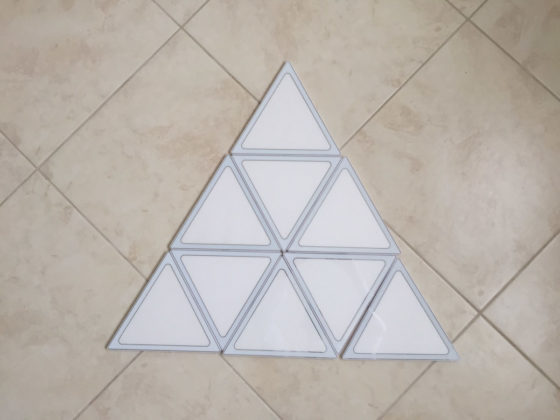
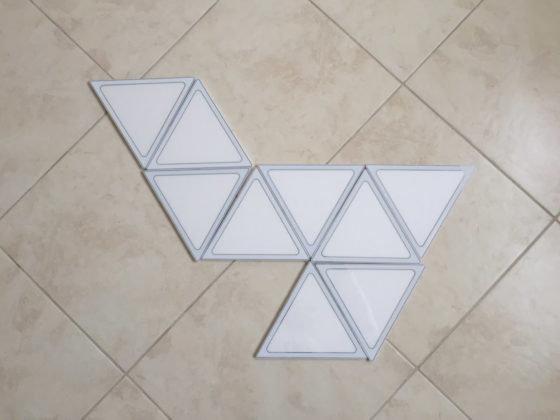
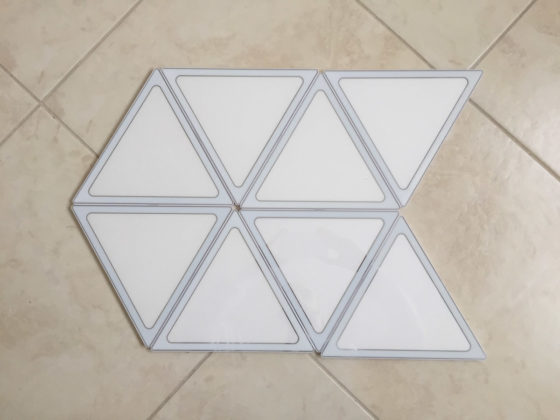
How is it going
This is actually the first, only and insurmountable problem with this system, partly due to poor quality connectors or power ports. In fact, at least in our test unit, some connectors do not work as well as some ports on the sides of the triangles lose contact at the slightest vibration.
It is a problem, we said, because these LED panels must then be fixed to the wall using the 3M adhesives included in the package. A small vibration will be enough to blow up the connection, necessarily requiring the disconnection and re-connection of the individual panels, an operation impossible without damaging the 3M adhesive (which must be re-purchased separately) and possibly the underlying surface to which it was fixed. .
At the moment we are thinking of two possible solutions that the company could have adopted in the design phase: one, accompany each LED panel to a quick coupling-release plate, fixed to the wall by means of plugs or 3M adhesives (for all surfaces that cannot be pierced). Or, two, completely redesign the system allowing you to pre-configure the connections and then power the lamp at a later time. Maybe all accompanied by more robust connectors and contacts.
1 of 10 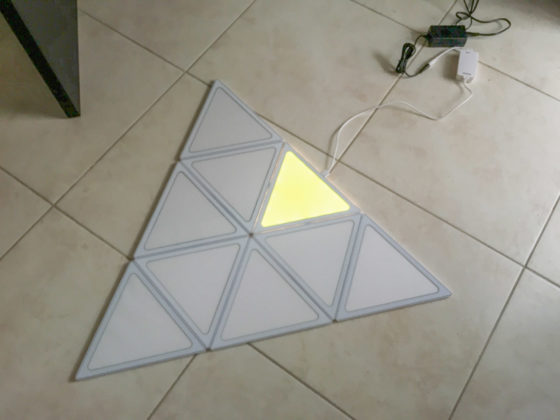
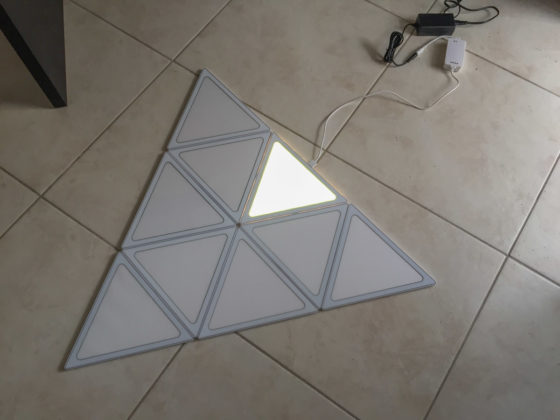
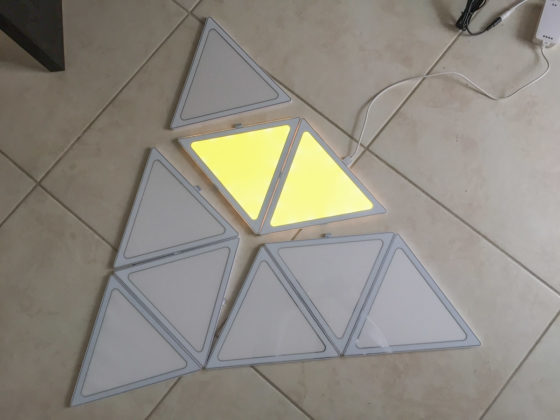
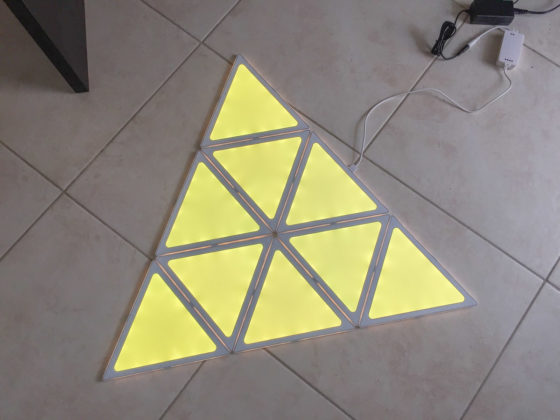
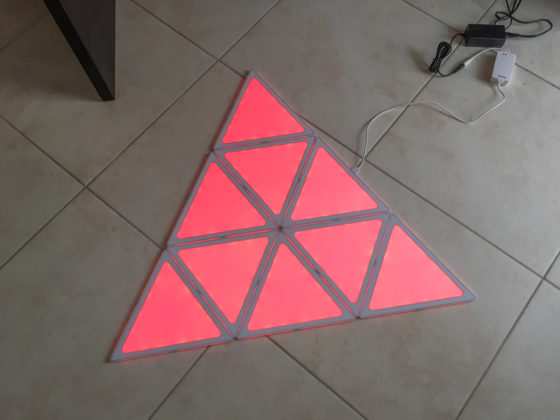
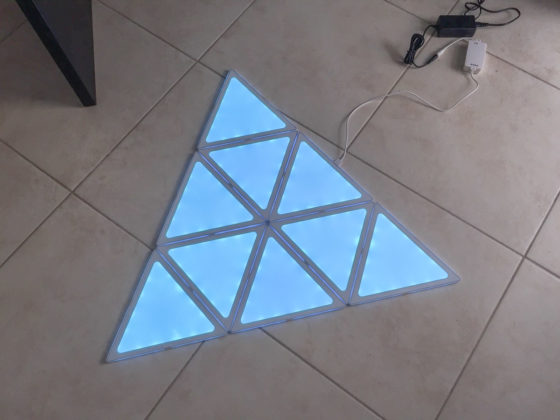
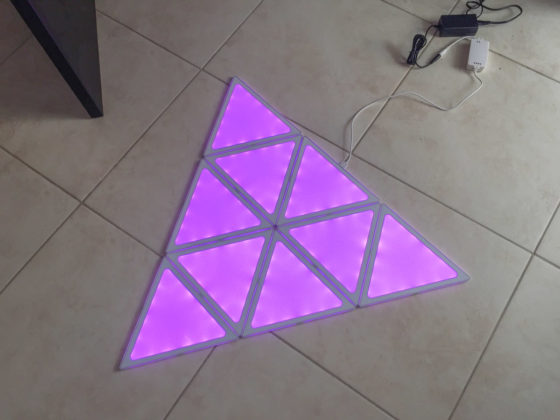
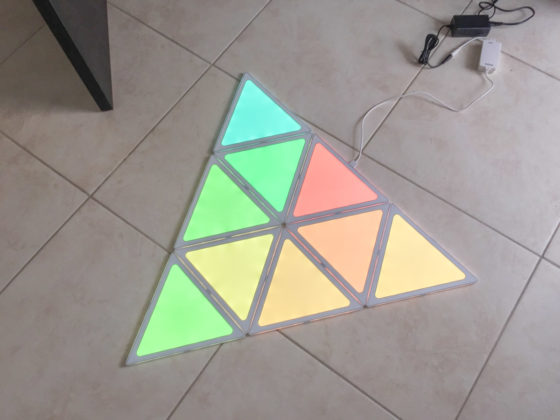
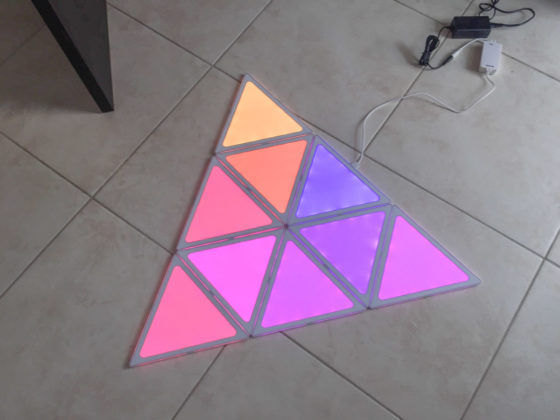
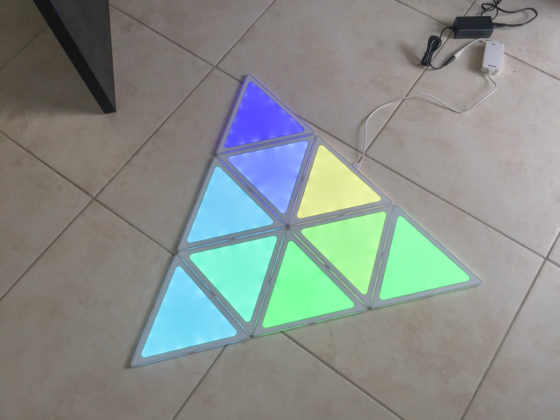
Too bad because otherwise the SKS-SP107E lamp works really well. It is possible to adjust the brightness and color of all the panels at the same time by selecting the one you prefer from a palette or select one of the 180 light games available, which will vary the same parameters for the individual LED panels, with flashes and transitions truly fascinating light.
There is also the auto mode, which cyclically selects all 180 light effects, and the Music mode, which makes the lights dance to the rhythm of the music being listened to. If you do not connect the jack cable (using the splitter included in the package) to the audio source, the device is able to listen to music using the microphone integrated in the smartphone, so it is able to react – with plays of light – even to the voice. . In this mode it is possible to select one of the different effects available.
Too bad, however, it is not possible to adjust the color of the individual LED panels, favoring the creation of completely customized light designs.
Conclusions
The genius of the SKS-SP107E modular system is, as explained, also its greatest weakness due to the dancer connection between the various panels and the difficulty of managing them following wall application.
The overall dimensions of the power supply system must also be taken into consideration, which must be suitably concealed to avoid leaving hanging boxes and cables in view: also in this case an alternative power supply system would probably have been preferable through the connection of the cable on the back of the panel, perhaps to be hidden together with the power supply inside an electrical box.
Pro
Cons
Public price
SKS-SP107E is on sale on GearBest and costs about 200 euros.

